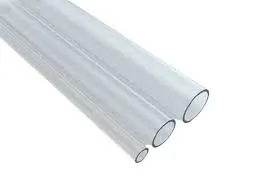کانونی یەکەم . 05, 2024 15:03 Back to list
hdpe sewer pipe
HDPE Sewer Pipe An Overview of Its Benefits and Applications
High-Density Polyethylene (HDPE) sewer pipes have become a popular choice in the construction of sewage systems and drainage infrastructures. With an increasing demand for efficient, reliable, and long-lasting materials, HDPE pipes offer numerous advantages that make them a preferable option for municipal and industrial applications.
What is HDPE?
High-Density Polyethylene, often abbreviated as HDPE, is a thermoplastic polymer made from petroleum. Recognized for its high strength-to-density ratio, HDPE has a high resistance to impact and withstands various environmental conditions. These properties make it particularly suitable for the rigorous demands of sewer systems and other underground applications. HDPE is available in various forms, but when used as pipe, it is crafted to ensure a seamless and robust product.
Advantages of HDPE Sewer Pipes
One of the most significant benefits of HDPE sewer pipes is their remarkable flexibility and resilience. Unlike traditional materials such as concrete or metal, HDPE can handle ground movement, reducing the risk of cracks and leaks. This characteristic is especially critical in areas prone to seismic activity or where soil shifts are common.
Additionally, HDPE pipes are lightweight, making them easier to transport and install. This feature not only reduces labor costs but also minimizes the environmental impact associated with heavy machinery required for installation. The installation process itself is often quicker, leading to reduced project timelines.
HDPE is known for its corrosion resistance, which is crucial in sewer applications where pipes are exposed to aggressive chemicals and biological activity from sewage. Traditional materials may corrode over time, leading to leaks and structural failure; however, HDPE remains unaffected, ensuring a longer life span for the sewer system. In fact, HDPE pipes have an expected lifespan of over 50 years, often lasting well beyond that with proper installation and maintenance.
hdpe sewer pipe

Another essential aspect of HDPE pipes is their smooth inner surface, which promotes efficient flow rates and reduces the risk of blockages. This makes HDPE a favorable option for gravity-fed sewer systems, where optimal flow is critical to system performance. The smoothness of the pipe interior also means that less energy is needed to pump sewage, contributing to lower operational costs.
Environmental Impact
Sustainability is becoming increasingly important in construction and public works projects. HDPE pipes are environmentally friendly, as they are made from recyclable materials. Once the life cycle of the pipe reaches its end, it can often be repurposed or recycled, reducing landfill waste. Additionally, the lightweight nature of HDPE pipes decreases the carbon footprint during transport and installation.
The installation process of HDPE sewer pipes involves minimal excavation compared to traditional materials, which results in less disruption to the surrounding environment. By preserving natural landscapes and minimizing damage to existing infrastructure, HDPE contributes to sustainable development practices.
Applications of HDPE Sewer Pipes
HDPE sewer pipes are versatile and utilized in various applications beyond just residential sewage systems. They play a crucial role in municipal wastewater treatment facilities, stormwater management systems, and agricultural drainage. Their ability to withstand high pressures makes them suitable for both gravity-fed and pressurized applications. Furthermore, they can be used in trenchless technology, allowing for the installation of pipes without significant excavation, thereby preserving roads and other structures above.
Conclusion
In summary, HDPE sewer pipes offer numerous advantages that position them as a leading choice for modern sewage systems. Their flexibility, corrosion resistance, and longevity make them an ideal alternative to traditional materials. As the construction industry continues to pursue sustainable practices, the role of HDPE pipes will undoubtedly expand, contributing to efficient and environmentally friendly urban infrastructure. The continued development and adoption of HDPE technology are set to revolutionize the way we think about sewer systems, making them smarter, more durable, and more sustainable for future generations.
-
Premium Glossy PP Rigid Sheet – Durable & Versatile
NewsAug.07,2025
-
High-Quality HDPE Sheet | Durable Plastic Panels
NewsAug.06,2025
-
High-Precision PVC Rigid Sheets for Vacuum Forming | AI-Optimized
NewsAug.05,2025
-
Durable PVC-M Water Supply Pipes | 60-Year Life
NewsAug.04,2025
-
Premium HDPE Water Supply Pipes: Durable & Leak-Proof
NewsAug.03,2025
-
Premium PVC-M Water Supply Pipe - Durable & Efficient
NewsAug.02,2025

